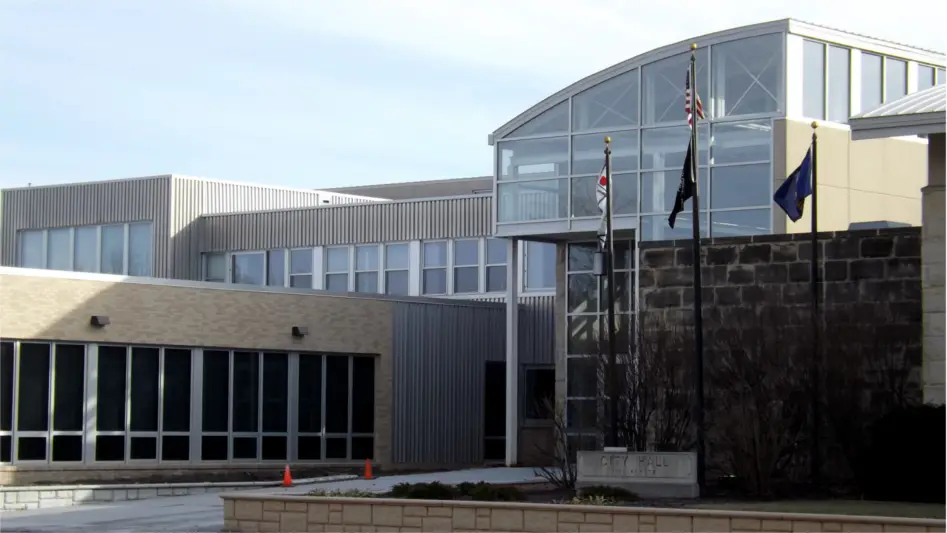Manhattan officials are exploring performing a study of housing costs, conditions and suitability in the region at an estimated price tag of $95,000.
City administration hopes to recruit the services of a contractor who can collect objective data on the housing market, identify issues and help craft future housing policy with public input. Officials cite the results of Manhattan’s most recent community survey, which found 50 percent of respondents expressed some level of dissatisfaction with housing in the city, as part of the driver behind pursuing this study.
Assistant Community Development Director Chad Bunger says the goal is to use a data-driven approach to key in on what issues or gaps exist in the market — be they issues of affordability, code compliance, zoning, size and location or beyond — before identifying solutions. The study will specifically focus on households that earn up to 150 percent of the federal poverty line and students, and Bunger says they intend to use the findings to create projections to better anticipate market changes as well.
A similar study has not been performed in Manhattan since 2000. Bunger anticipates the study, if approved, will take 12 to 18 months and will integrate public outreach into the process at multiple points in time. Additionally, officials are exploring the possibility of creating a citizen’s housing advisory board to provide input on various elements of the study. Though regional in scope, solutions and policy proposals stemming from the study would be Manhattan specific.
The project was already included in the 2020 budget and is part of the 2020-2024 capital improvements plan. The estimated cost of $95,000 is proposed to be split four ways — with $59,375 coming from the economic development fund and $11,875 apiece being drawn from the water, wastewater and stormwater enterprise funds.
A majority of commissioners voiced support for both the study and funding. The housing conversation in Manhattan has been going on for years, according to Mayor Usha Reddi, but she says hard data like what can be collected by this study has been missing from the discussion.
“This is worth putting some money into,” says Reddi. “The study will give us some concrete data from an impartial party where this is their strength.”
Mayor Pro Tempore Wynn Butler, though, wasn’t convinced a consultant would do a better job than a committee of local residents. Butler also opposed the proposed funding split, reiterating his refusal to vote for non-utility capital improvements using utility money.
“Part of affordable housing is your water bill and your sewer bill,” says Butler. “And what are we doing? We’re funding an affordable housing study by again pirating money from the enterprise funds.”
In the past, Butler has noted that conversations on housing conditions in the city have centered around anecdotes and not data. In regards to this study, though, Butler expressed concerns that the volume of data it would collect would be too high to be useful. Commissioner Mark Hatesohl made similar remarks.
“At the end of the day, what will the city do with this information that’s outside of the realm of what the marketplace will already determine this community needs?”
Commissioner Aaron Estabrook saw things differently. He said the study provides a necessary informational foundation around which to center the housing conversation around and that the city cannot rely solely on developers or housing activists to identify the issues facing Manahttan.
“This seems like the only way that we can get a piece of paper that gives us data that isn’t already tainted by somebody’s history or baggage in the community that has an agenda, so to speak,” Estabrook said.
Commissioner Linda Morse also advocated in favor of the study, saying she believes the information could have provided a benefit to the community in multiple past decisions. She also said it is important for the study not to overlook population of homeless people in Manhattan.
“That’s an important figure also, around the country the number of homeless [people]is going up,” said Morse. “We need to keep an eye on what’s happening here in that regard.”
Region Reimagined Program Director Christie Rodriguez also voiced support for the study during public comment, saying such a study is a critical element in their regional economic development plan.
“It’s critical that we have this data in order to make data-driven decisions moving forward,” according to Rodriguez, who further said their built environment work group has also stopped meeting in anticipation of a housing study.
Estabrook was interested in funding the project fully with economic development money, though said he would support using utility money if needed. Reddi was open to using both sources. Morse, who has in the past advocated for preserving economic development money as much as possible, was open to using the fund and enterprise money due to how important she thought the project is. Butler and Hatesohl were more favorable toward using economic development money to fund the study, though still had misgivings about the project.
As a majority of commissioners were in favor of pursuing requests for qualifications from contractors Tuesday, the item will return before the board for an official vote on issuing the RFQ later in February. A projected timeline has deadlines for submissions falling on March 27. From their a selection committee will review submissions and interview candidates. If everything goes according to plan, the commission could vote on a contract in July. The study would be complete by December 2021.
Special assessments
Manhattan will assess nearly $5 million in special assessments for public infrastructure improvements in multiple subdivisions.


